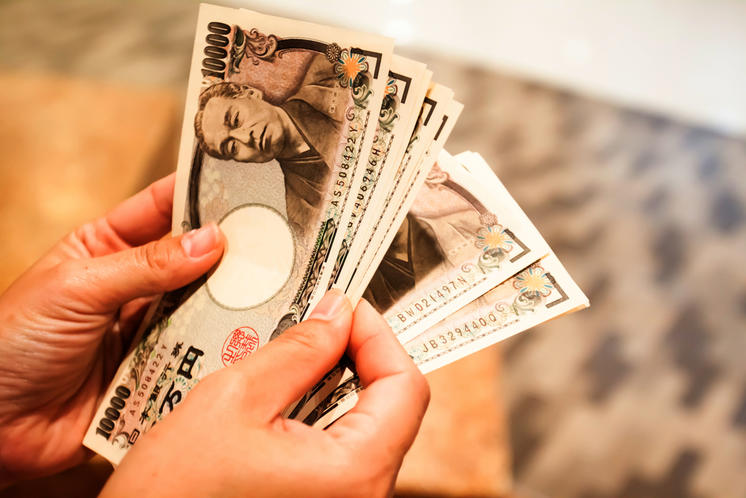Weekly Thoughts by Mirabaud Securities - 16 August 2019



The U.S. Treasury yield curve temporarily inverted on Wednesday, for the first time since June 2007, in a sign of investor concern that the world’s biggest economy could be heading for recession. Weak economic data and low inflation around the world, trade conflicts, and political tension in places such as Hong Kong have sparked worries about global growth, fueling market expectations of central bank interest rate cuts and triggering steep falls in government bond yields. On Wednesday, the Dow Jones experienced its weakest close since June 4th and a huge drop -down 800 points and below its 200 DMA-, the biggest since October 31st. Since Powell cut rates, Bonds and Bullion are up 6%, stocks are down 6%, and the dollar is unchanged...
In Europe, the week was negative for major indices. The MSCI world equity index, which tracks shares in 47 countries, broke an import support (2’100 points). In Asia, MSCI’s broadest index of Asia-Pacific shares outside Japan lost about 1%.

Less than one month ago, we wrote that the euro-swissy will break its important support level: 1.10. We are now at 1.085 and the 1.05 might soon be tested. The yen and Swiss franc gained on Friday, as investors sought the safe-haven currencies due to nagging U.S.-China trade war jitters, renewed political uncertainty in Italy and weak economic data around the world. Deep liquidity and current account surpluses in Japan and Switzerland attract safe-haven flows to those currencies during times of geopolitical and economic stress. The dollar was strong against most of the G10 currency members (the GBP was the only gainer). In emerging markets (still vs. dollars) most of the currencies were weak. The biggest looser of the past week was the Argentinian peso. The only winner was the … Chinese yuan.

This is not the first time we talk about this sector, but this week we focused on the evolution of mortgage rates. With over $16 trillion in negative-yielding debt around the world, Denmark's third-largest bank (Jyske Bank) is now offering borrowers mortgages at a negative interest rate, effectively paying its customers to borrow money for a house purchase! Jyske Bank said this week that customers would now be able to take out a 10-year fixed-rate mortgage with an interest rate of -0.5%, meaning customers will pay back less than the amount they borrowed.
What this means is that if you buy a house for $1 million and pay off your mortgage in full in 10 years, you would pay the bank back only $995,000. No mortgage payments would be due between the purchase and payoff date, so effectively a borrower only has to repay the principal... with a small discount, guaranteeing that the bank loses money on the loan. That said, even with a negative interest rate, banks often charge fees linked to the borrowing, which means homeowners could still pay back more. What is even more bizarre, however, is that unlike most of its European peers, Danmarks Nationalbanken, Denmark's central bank, has held its main lending rate positive at 0.05 percent since January 2015, whereas much of Europe and Switzerland have cut their rates in deep negative territory for the past 5 years.

Hong Kong police fired volleys of tear gas to disperse anti-government protesters on the beginning of the week - sending tourists fleeing weeping in Kowloon - only for demonstrators to regroup and gather elsewhere during another tense, hot and restive weekend. Weeks of increasingly violent protests have plunged Hong Kong into its biggest political crisis for decades, posing a serious challenge to China’s central government in Beijing. On Saturday activists rallied across the city, with thousands occupying the airport arrivals hall for a second day, while elsewhere police displayed a new willingness to quickly and forcibly clear them from the streets.
The impact from the Hong Kong protests is spreading to global luxury retailers, with jewelry and cosmetics getting hurt as shoppers and big-spending travelers stay away. Swiss luxury-goods maker Richemont became the latest casualty, saying Thursday the street demonstrators dealt a blow to local sales. The owner of Cartier and Van Cleef & Arpels echoed Swatch Group AG in saying that the unrest in Hong Kong, the top export market for Swiss watches, weighed on sales due to store closures and lower tourist arrivals.

Macy’s Inc. lowered its full-year earnings outlook after missing profit expectations in the latest quarter, as department stores continue to lose shoppers to newer forms of retailing. The company’s margins in the quarter fell to 38.8% from 40.4% a year earlier, hit hard by steep markdowns. In a troubling sign heading into the key back-to-school and holiday seasons, the department-store chain said inventories of unsold items swelled in the summer quarter. At the same time, Tourist arrivals to the United States have taken a hit in the past year, hurt by a stronger dollar and escalating trade tensions between Washington and Beijing, denting the number of Chinese visitors to the country.
Like its peers, Macy’s, which has closed more than 100 stores since 2015 and cut thousands of jobs as mall traffic plummeted, faltered in the past few years as it struggled to adjust to a fiercely competitive retail landscape where shoppers buy more goods online at places like Amazon.com Inc. The 160-year-old company is pumping money into projects such as remodeling its stores and building up its off-price and online businesses. But is it not too late? As a reminder, Macy’s shares, which have declined about 45% this year, opened at a near 10-year low.
Several hot topics were discussed this week, including:
Italy: another divorce / Hong Kong / What if the Treasuries tested the 1.35? / Mortgage rates in negative areas... / Can the SNB intervene tomorrow?
Please feel free to ask for more information if interested.
SWOT stands for Strengths, Weaknesses, Opportunities and Threats, the French equivalent of FFOM analysis (Forces, Faiblesses, Opportunités et Menaces). While SWOT analysis can be used to develop a company's marketing strategy and evaluate the success of a project (by studying data sets such as company's strengths and weaknesses, but also competition or potential markets), I decided several years ago to adapt it as a way to analyse financial markets. SWOT analysis allows a general development of markets by crossing two types of data: internal and external. The internal information taken into account will be the strengths and weaknesses of the market. The external data will focus on threats and opportunities in the vicinity. Finally, and most interestingly, there is a table that will evolve according to current events, which will allow it to reflect the underlying trend in the financial markets on a weekly basis.
Diese Veröffentlichung wurde von Mirabaud erstellt. Sie ist nicht zur Verteilung, Verbreitung, Veröffentlichung oder Nutzung in einer Gerichtsbarkeit bestimmt, in der eine solche Verteilung, Verbreitung, Veröffentlichung oder Nutzung untersagt wäre. Sie ist nicht für Personen oder Unternehmen bestimmt, an die die Übersendung dieser Veröffentlichung rechtswidrig wäre.
Mehr lesen
Author
Weiter zu
